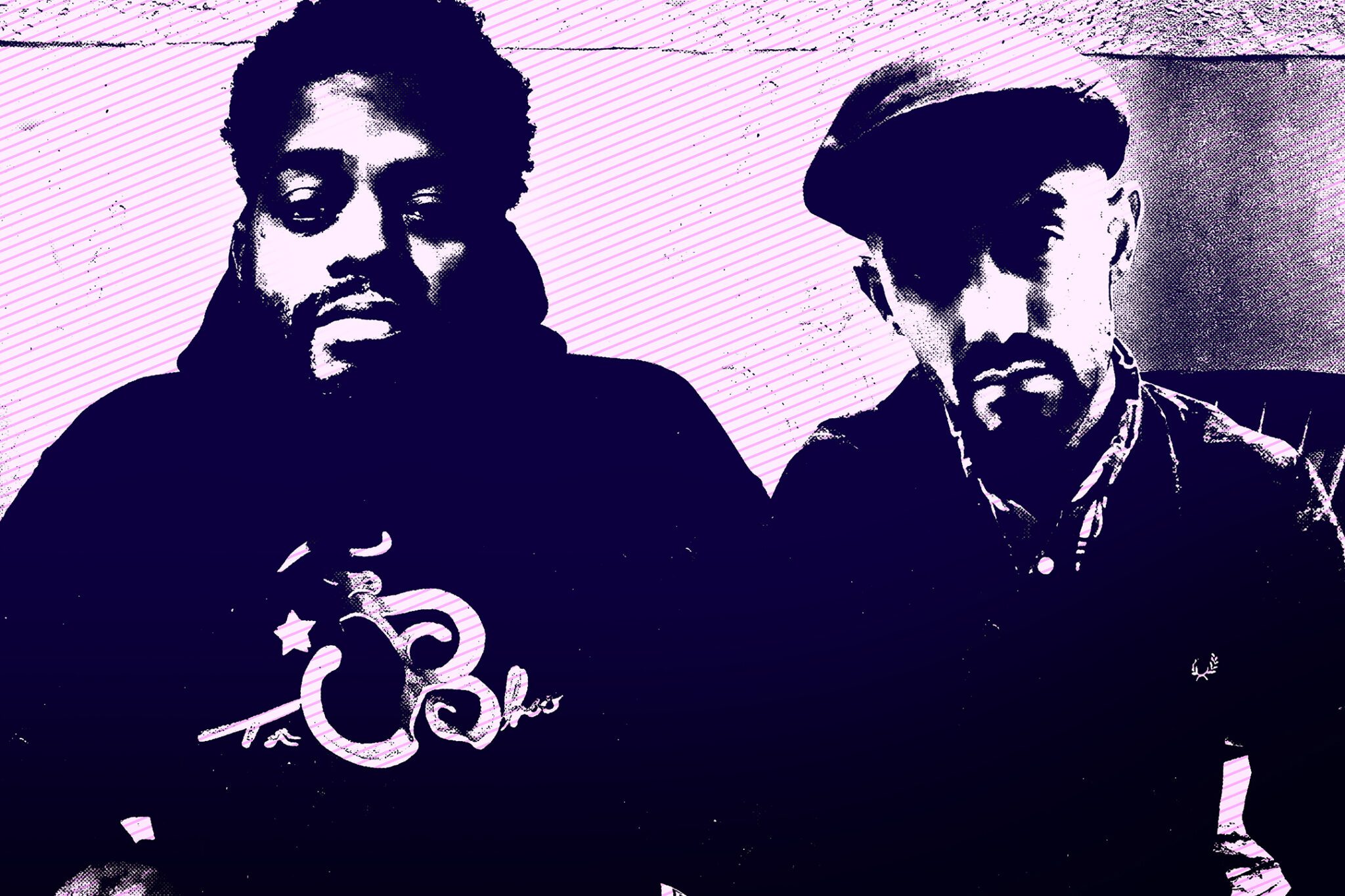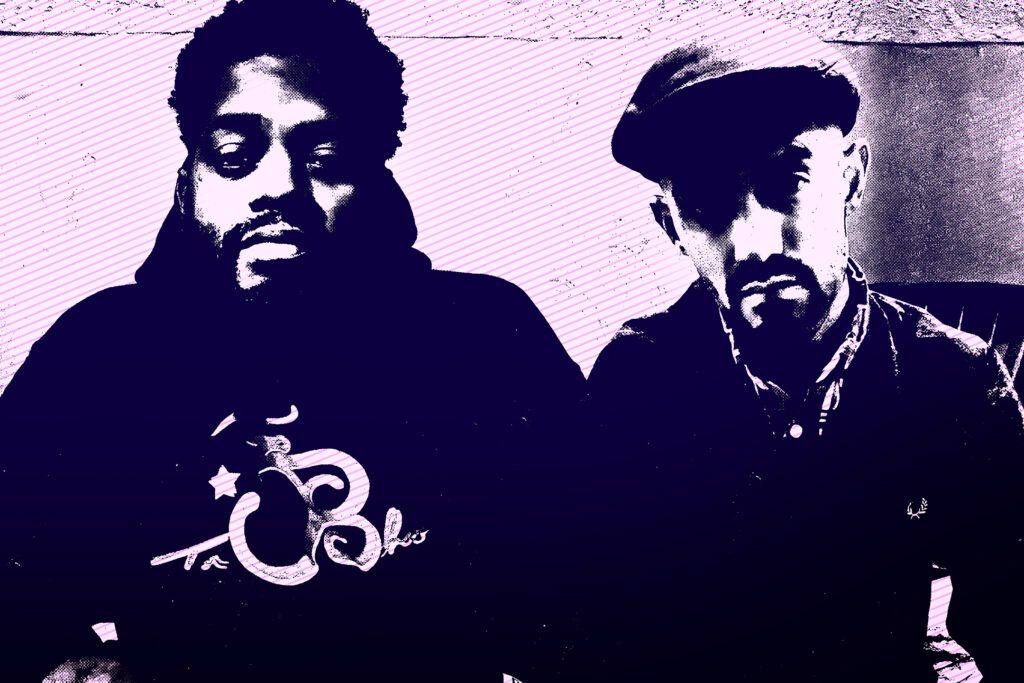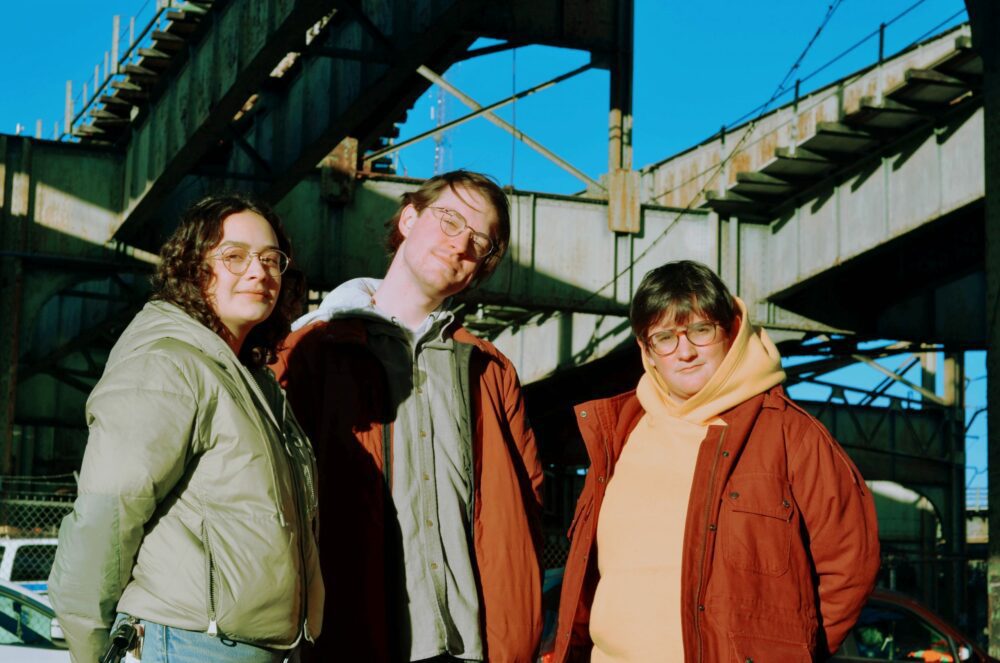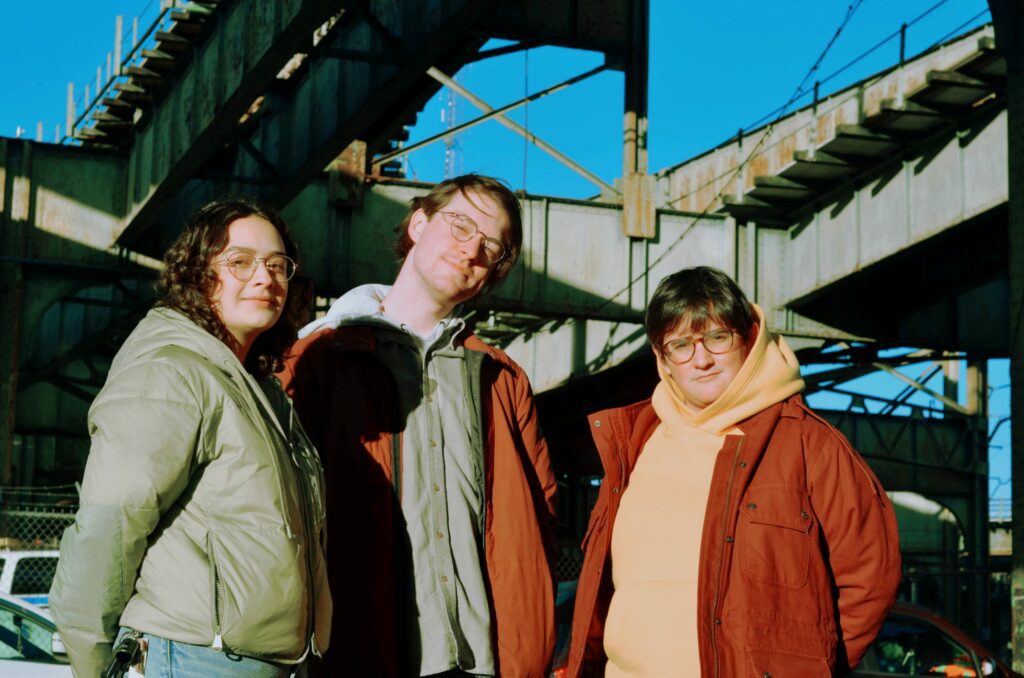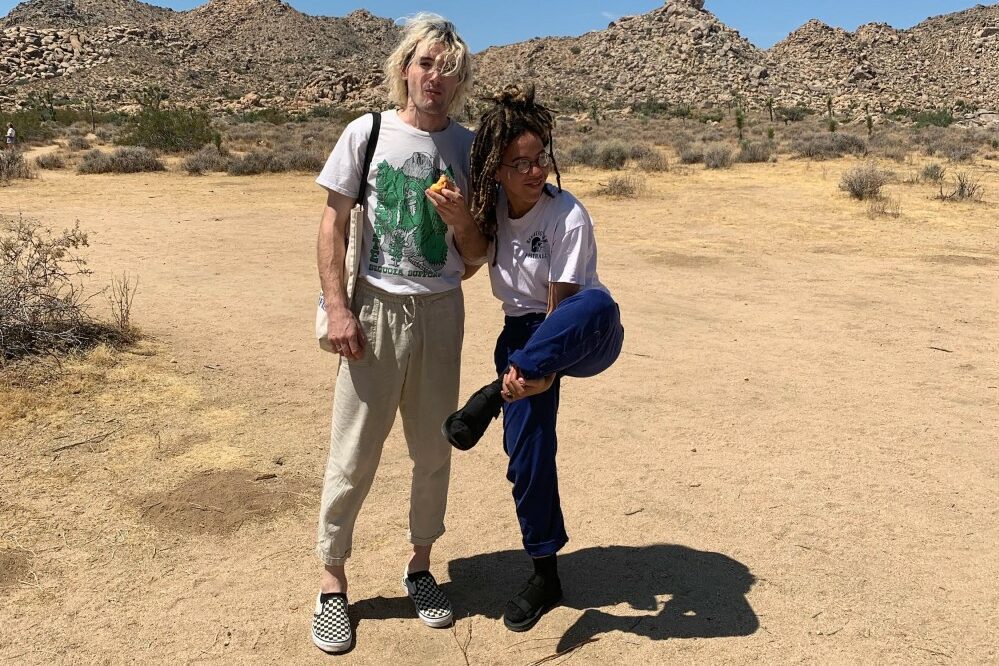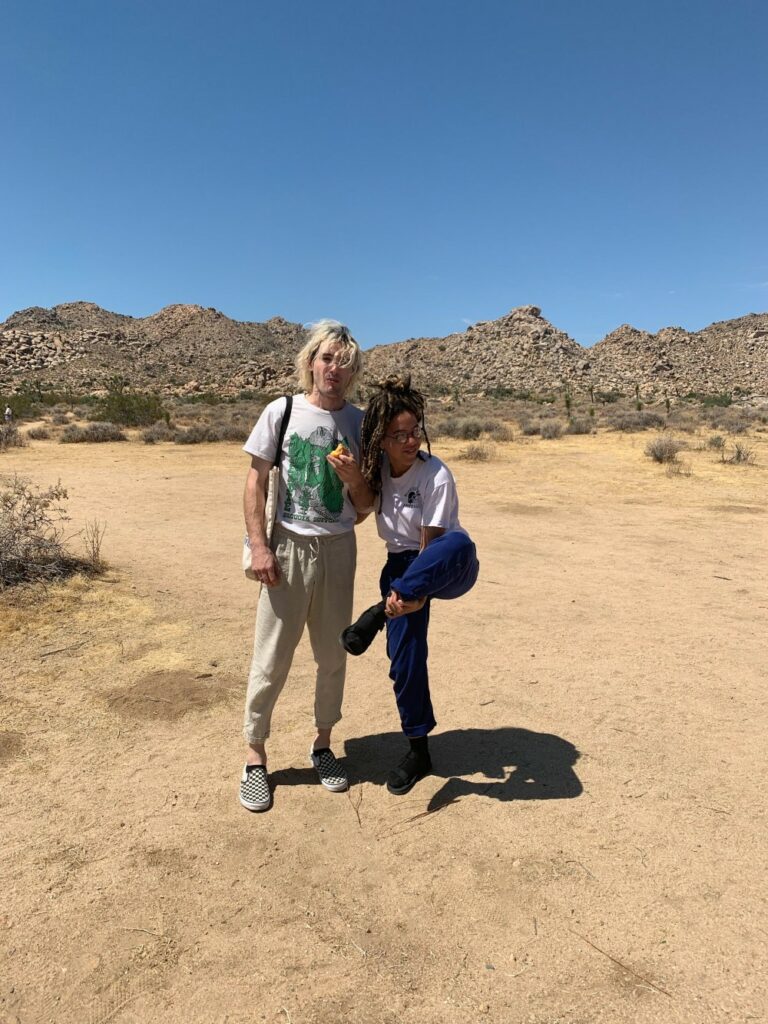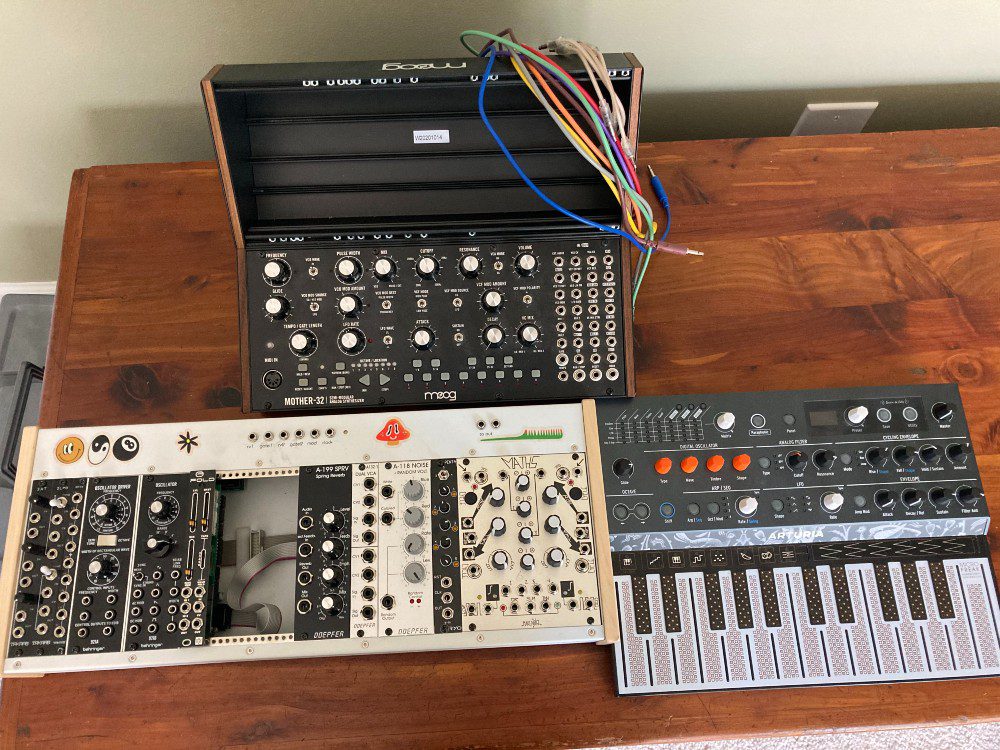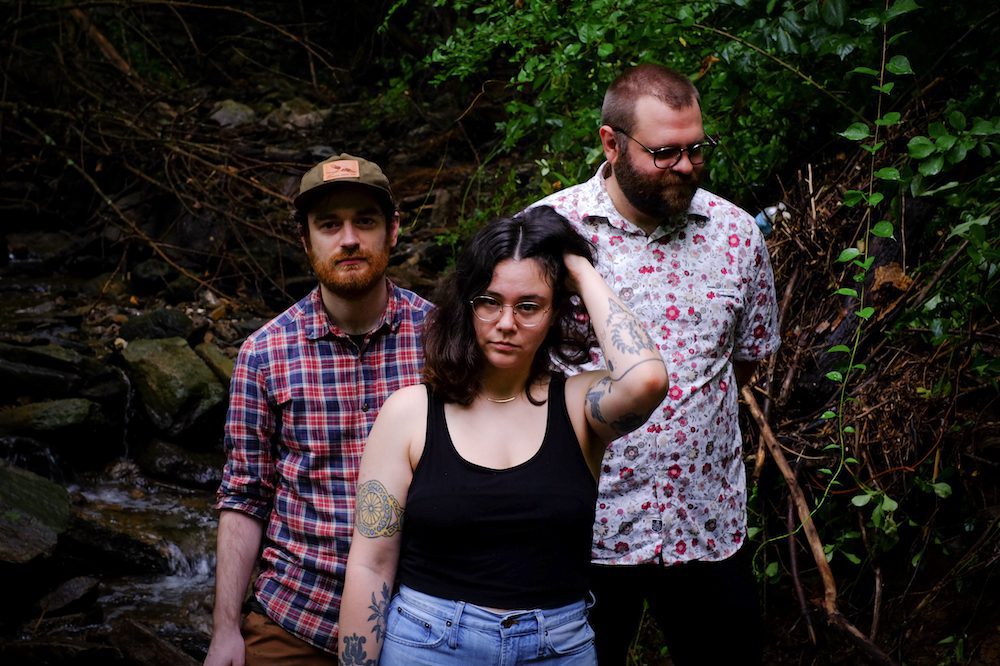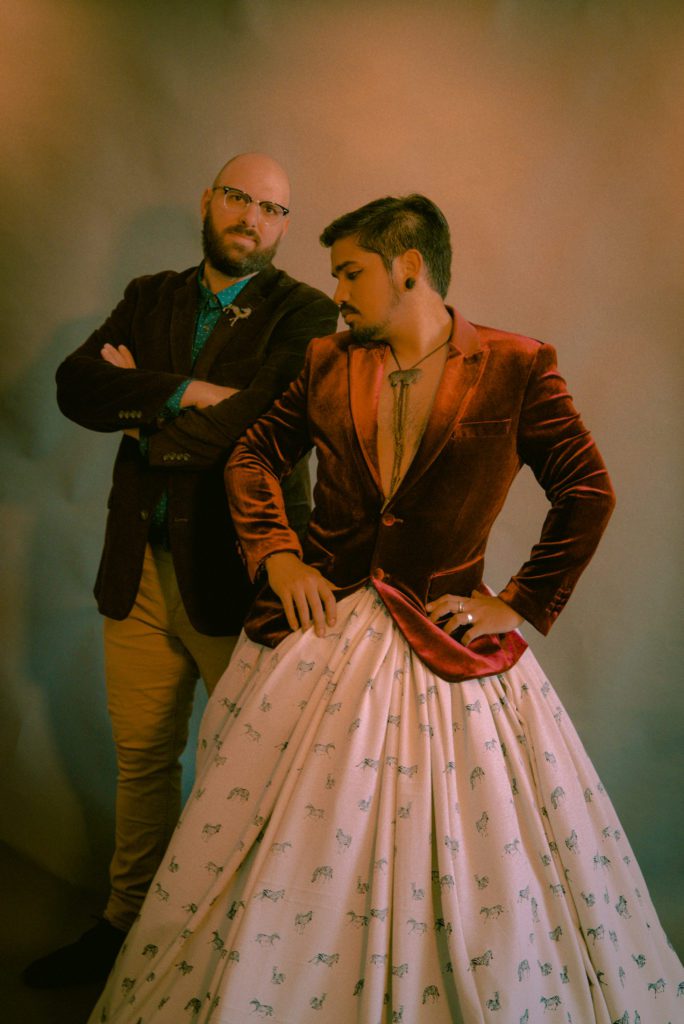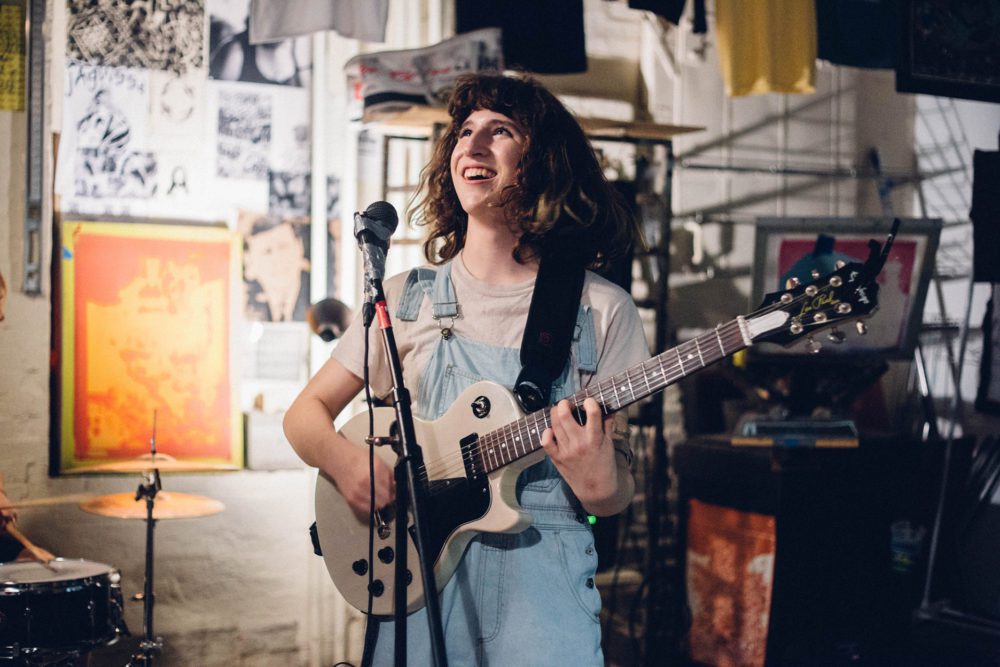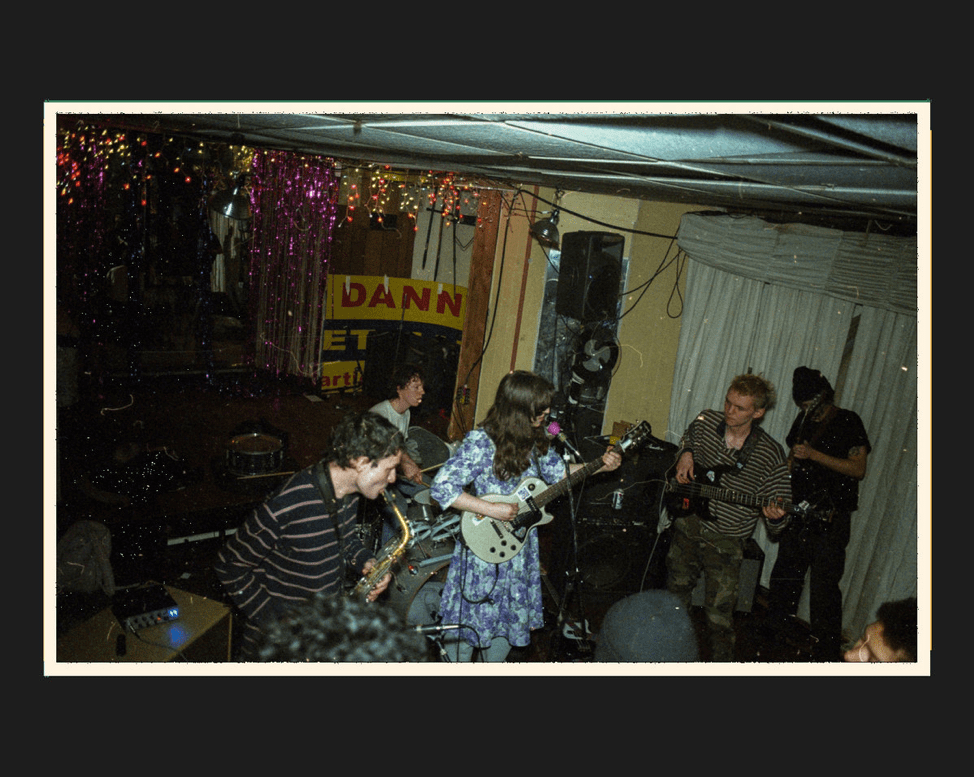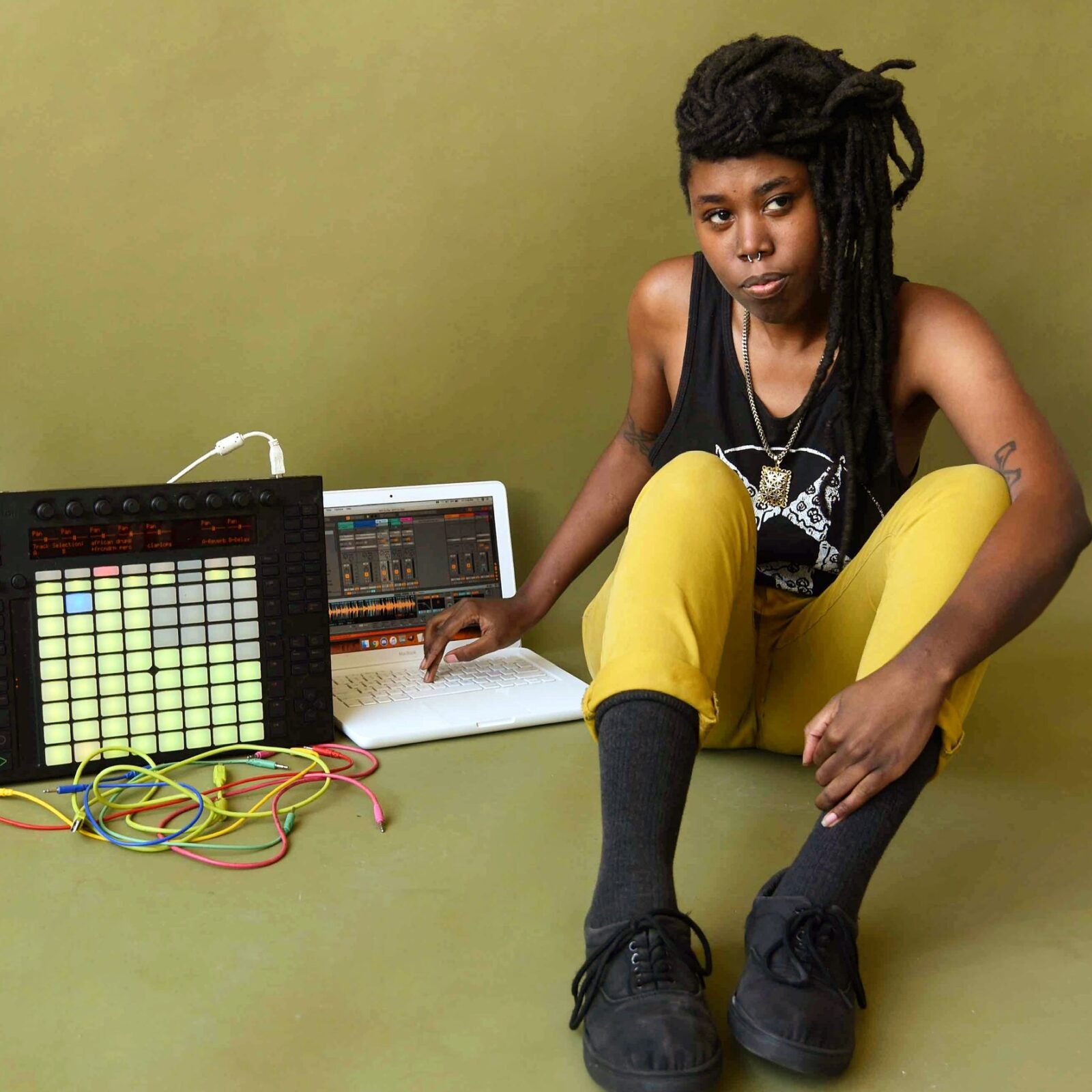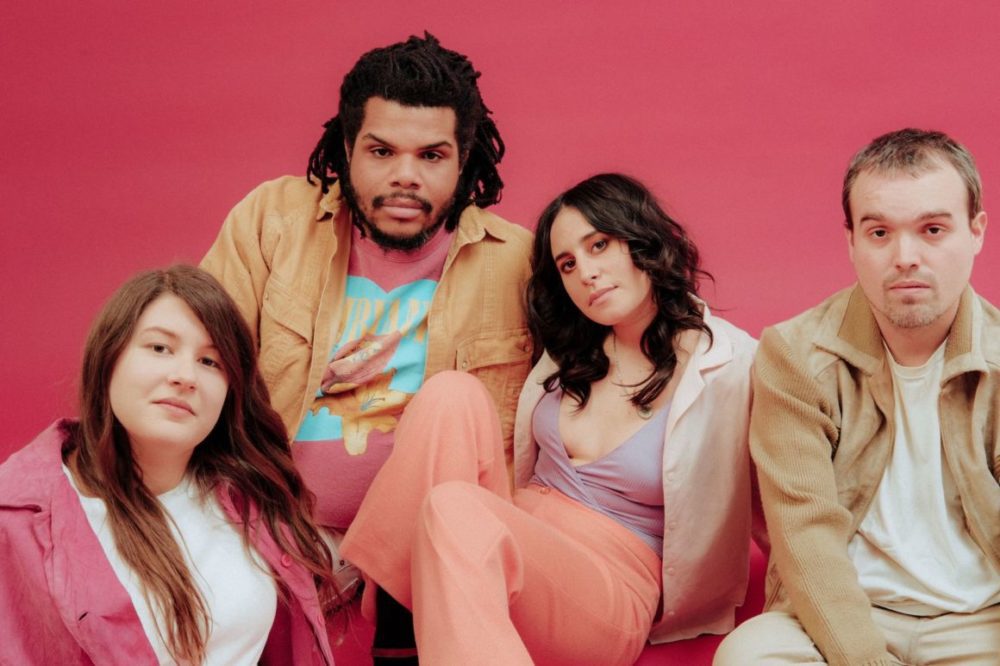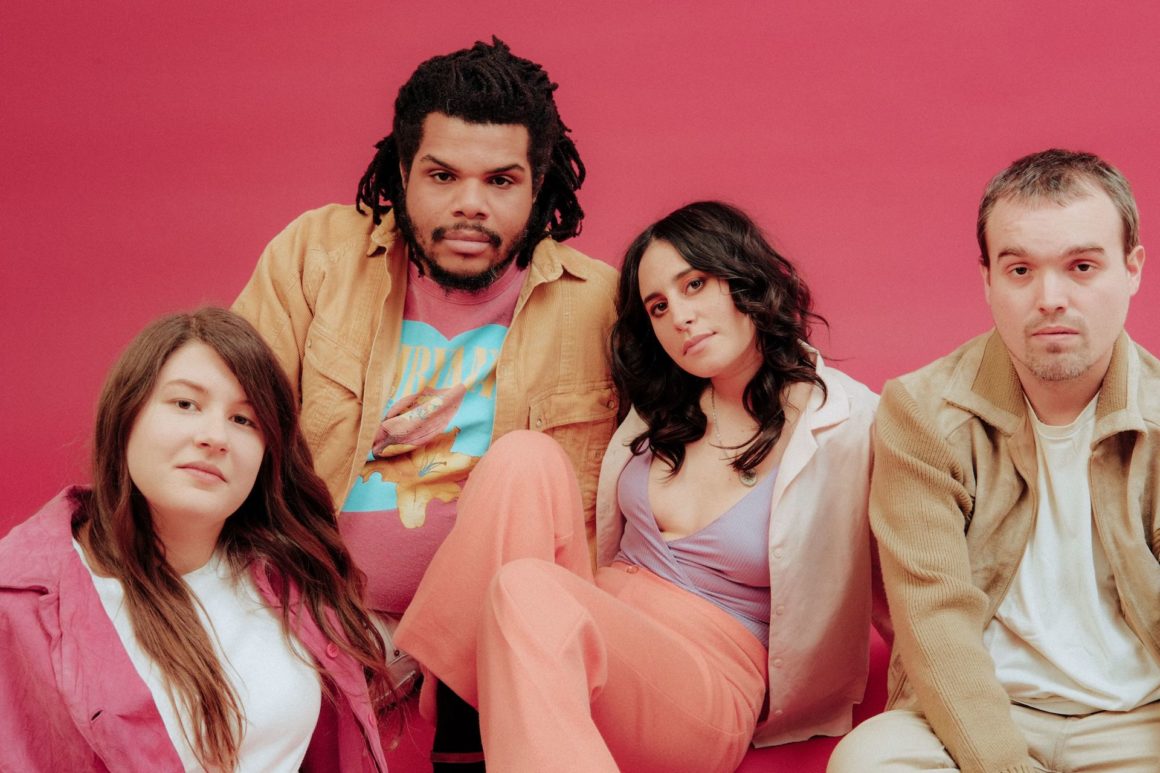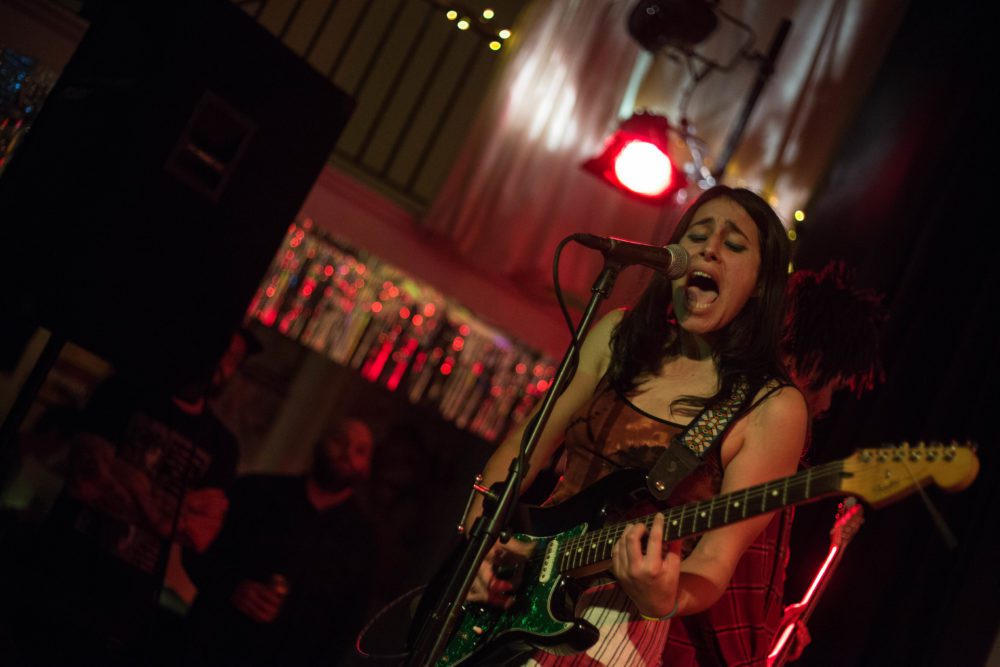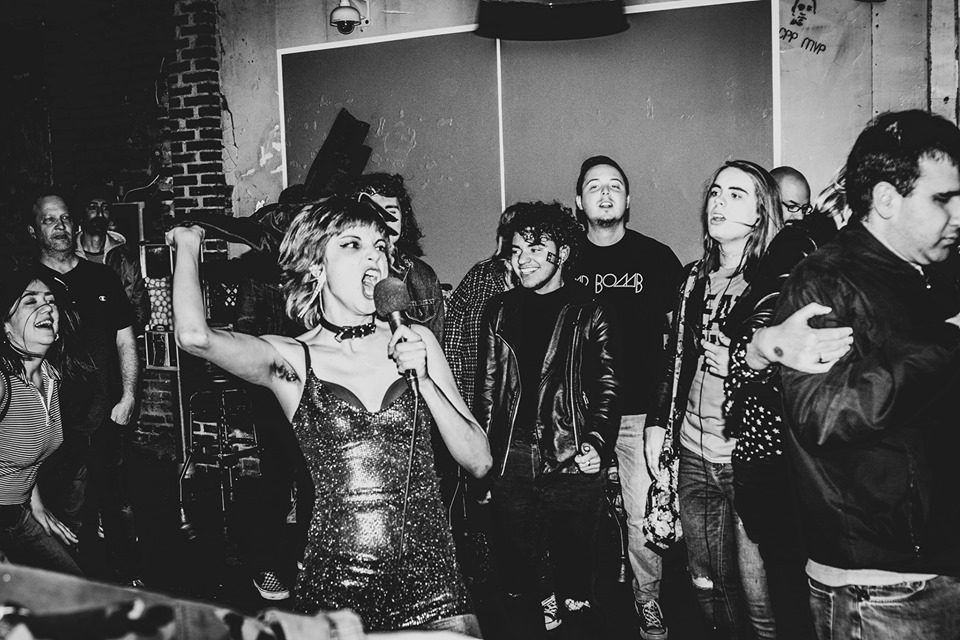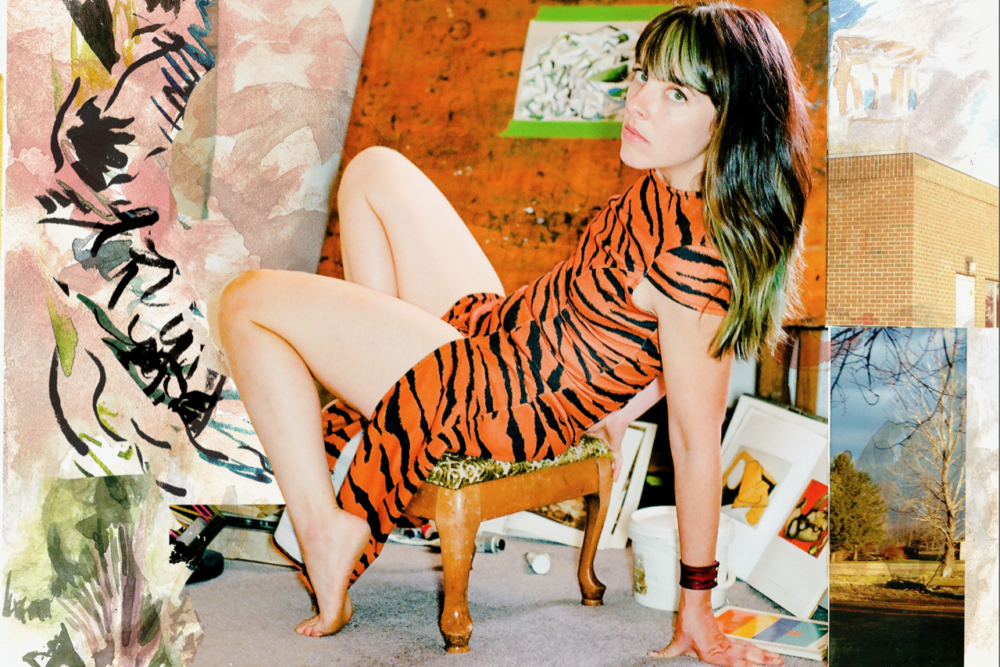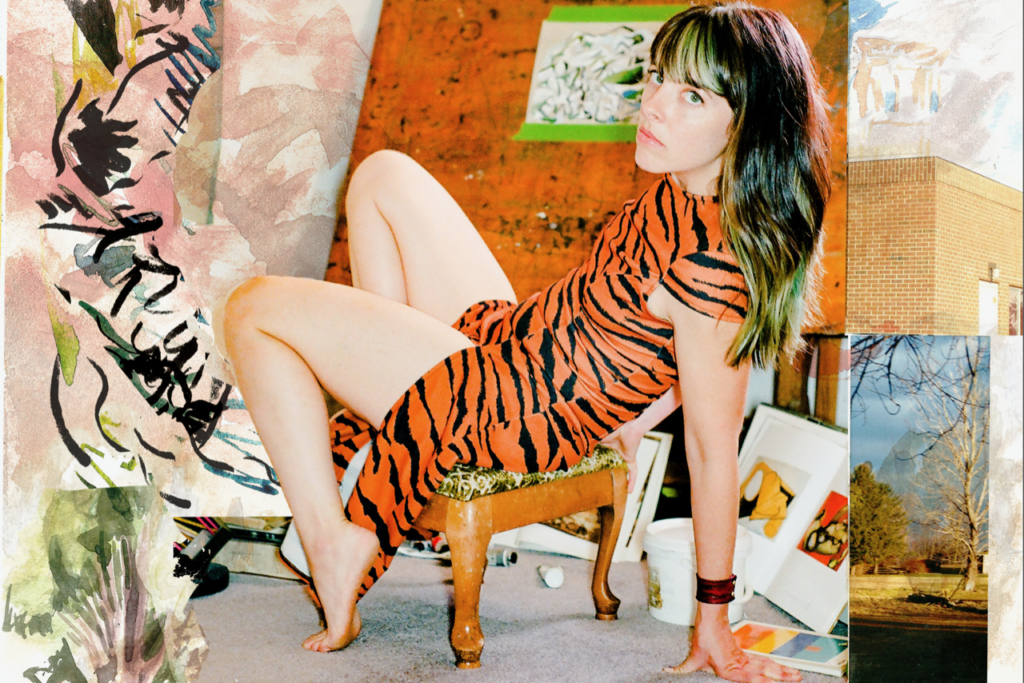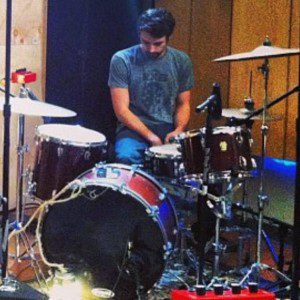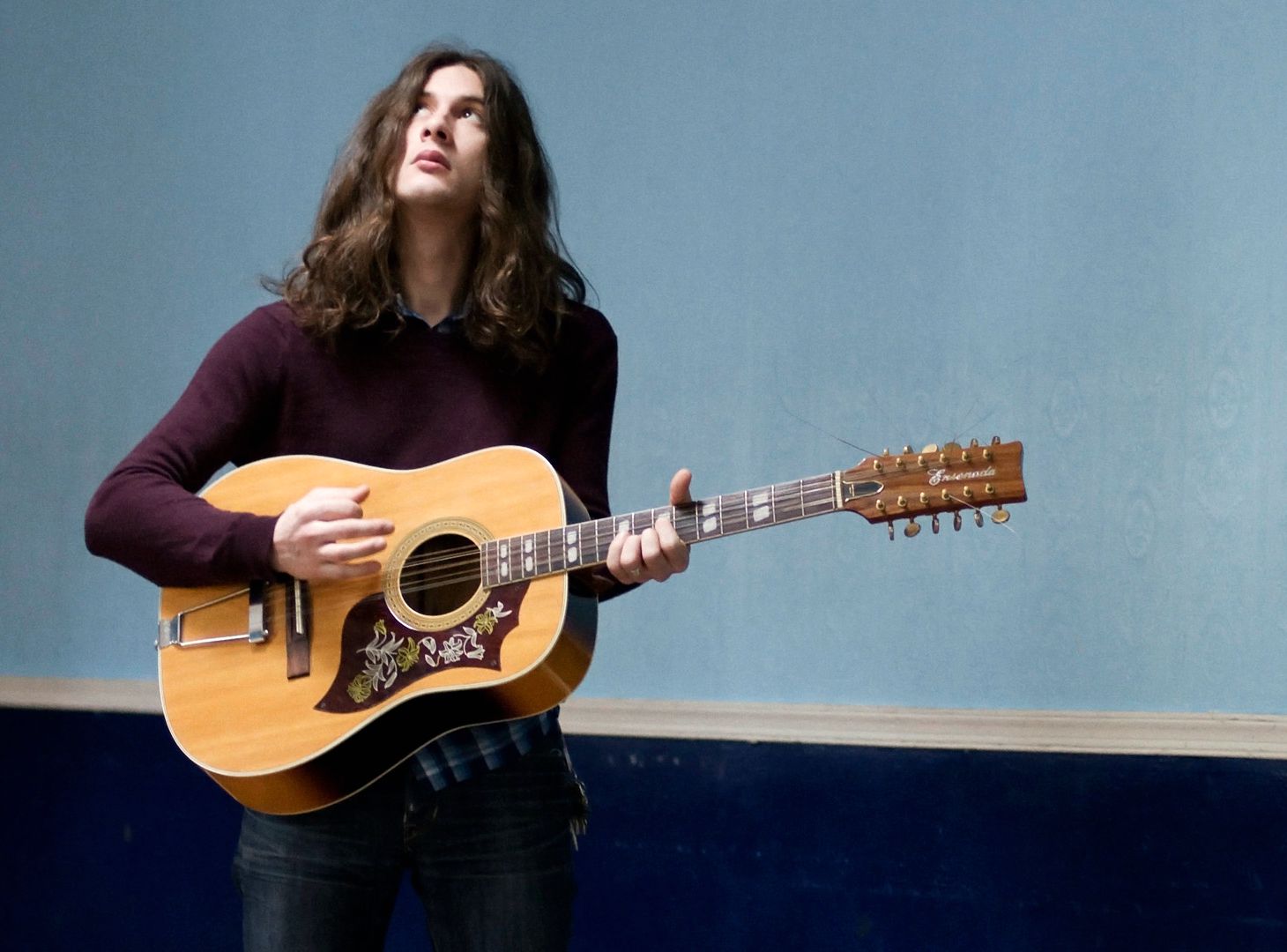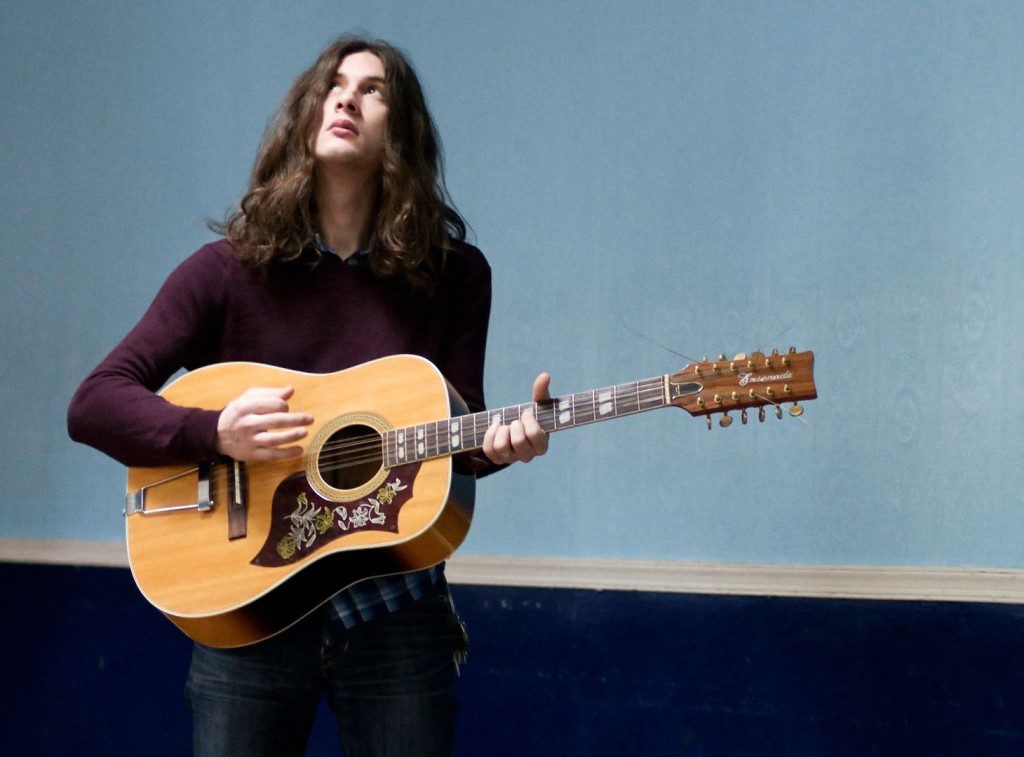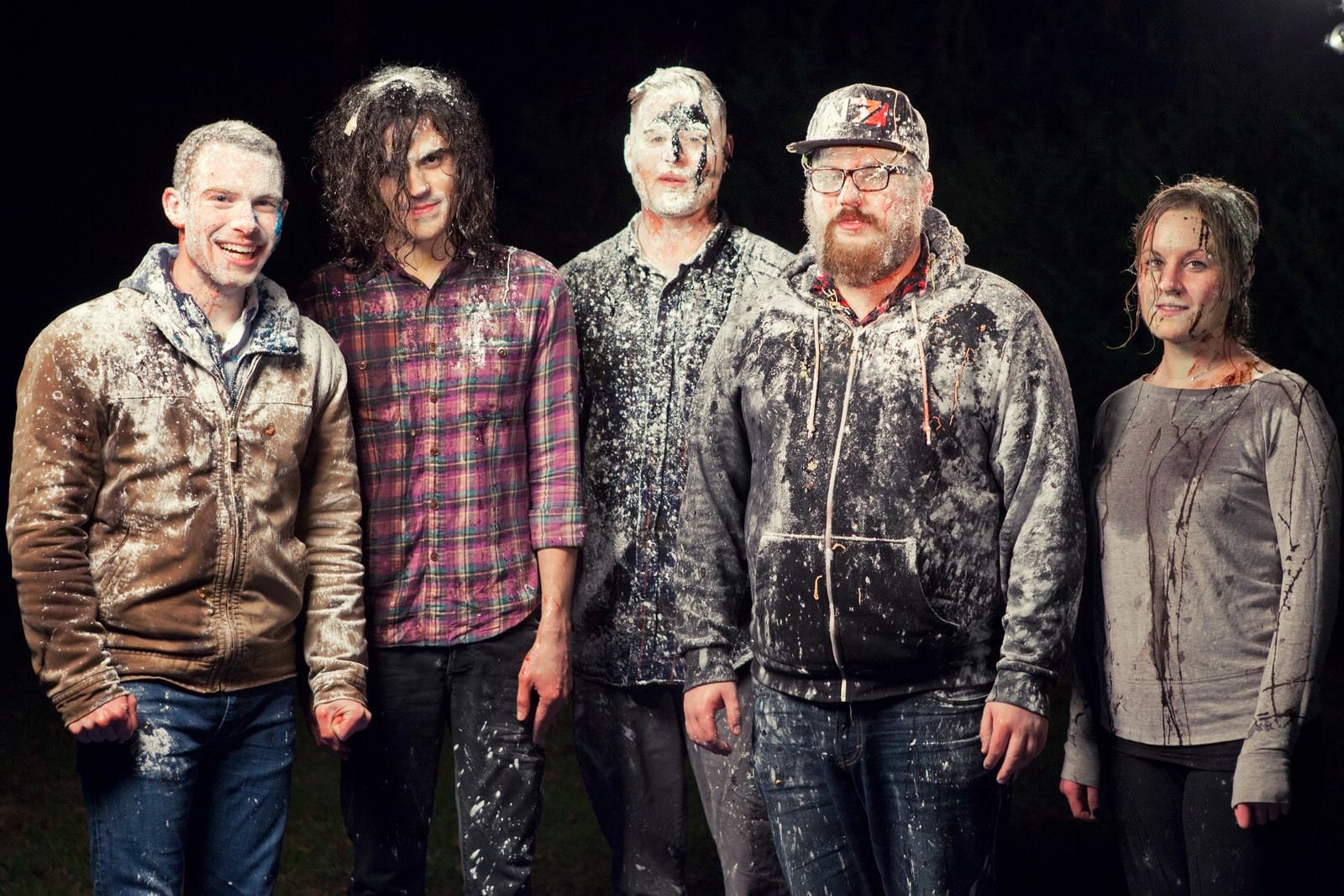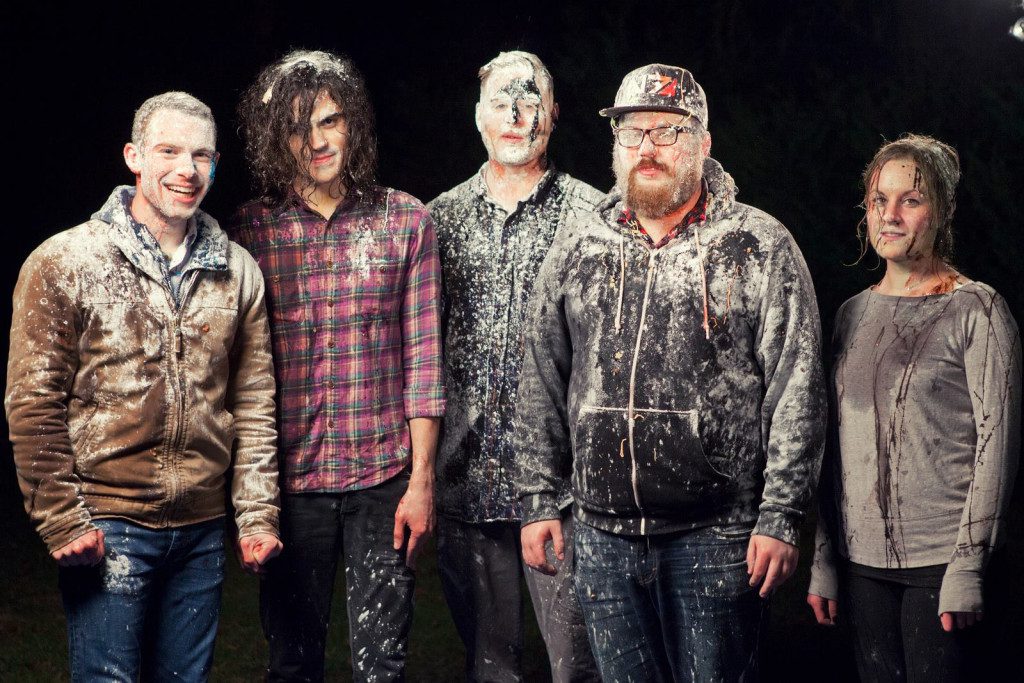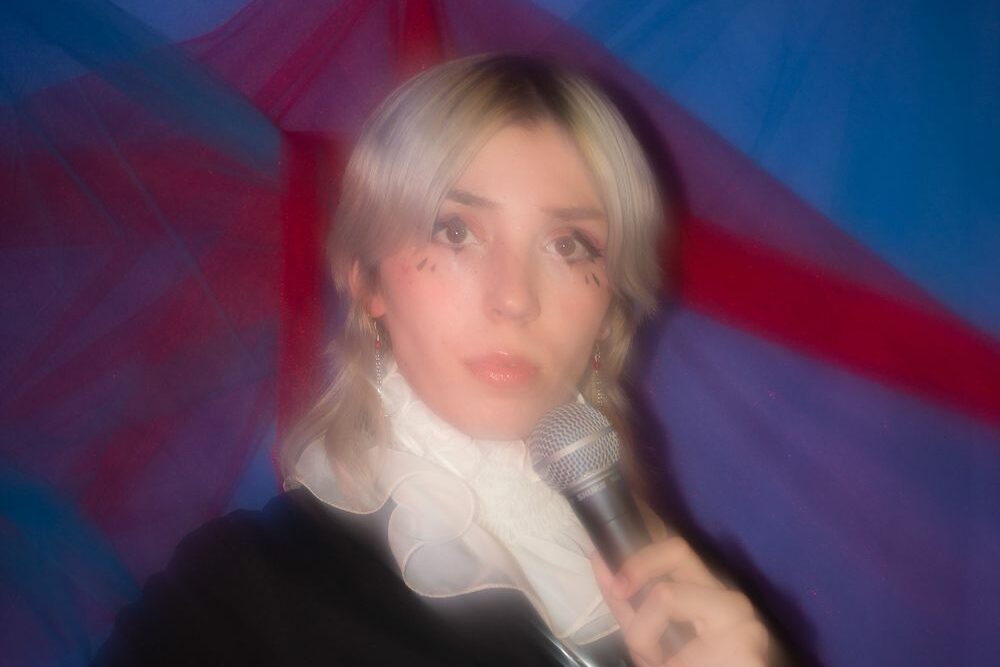
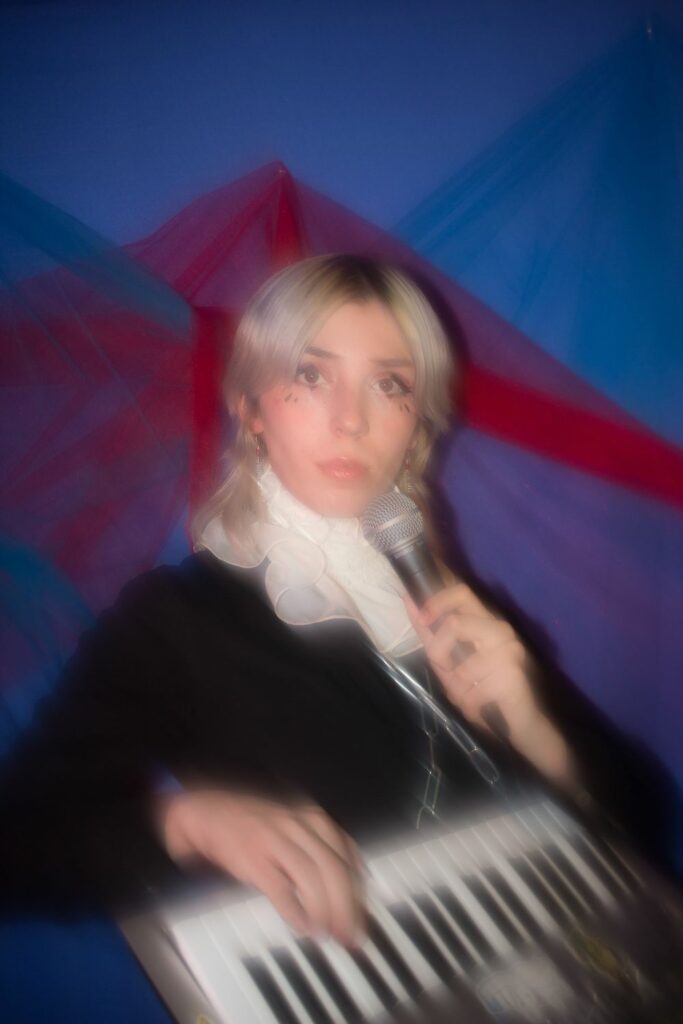
Philly isn’t really known for a bustling electro-pop scene, but emerging synth artist and songwriter Catherine Moan just might change that. The city’s known more for its contributions to punk and hip hop, and Moan felt a bit lost in it all, not sure where she fit in. “It [felt] sometimes like imposter syndrome, where I’m like, oh well, I’m not using all these real instruments, like guitar and bass, and I’m not making grimy real sounding imperfect music,” she says. But with the onset of the pandemic, Moan had the opportunity to stop everything else and really delve into her sound, without the insecurity that comes with comparisons to others. The fruit of this labor is her debut LP Chain Reaction, out in September on Born Losers Records. Today, she shares her first-ever music video, for single “Drop It!”
Like many artists, the pandemic became a sort of blessing in disguise for Moan, where the cessation of soul-crushing day jobs and the influx of government aid allowed her to refine the music that had been floating around in her head for many years. “The entire quarantine situation unlocked this creative outlet that was so liberating… I was doing schoolwork and everything before so I was super divided, and so my personal projects, I couldn’t really focus. With isolation I was able to make that my number one priority,” she says. It wasn’t all good, though, and the balance here further unlocked a lot of creative potential. “At the same time, all these terrible things were happening in succession with the world and personal stuff. I had so much going on that was like a perfect storm of all these things you have to worry about. I even lost my therapist, so the music became my therapy. Each song I was working on I’d pick a specific problem I was facing and flesh it out, make it into a song, a sound, poetry.”
And so she wrote the entirety of Chain Reaction during lockdown, citing early Depeche Mode, CHRVCHES, and TR/ST as influential for how they were able to use high energy beats alongside somber lyrics to create a sound that was both fun and serious at the same time. “The number one thing with music that I try to keep in focus is that it’s kind of silly,” she says, articulating her own vision. “It’s not entirely serious, because you’re dancing around and singing in your bedroom. Even if I’m writing about something super serious and personal, I try to keep a touch of light-heartedness and fun and clownery in it.”
The “Drop It!” video reflects this in its perfectly simple concept, in which Moan sings alone in front of a green screen background, solid colors and nightclub scenes superimposed behind her while the lyrics pop up in the foreground. It feels aspirational in nature, like she’s trying to manifest the fun she’ll have once it’s all over. There’s no one else at the party, only her cat and multiple animations of herself dancing in conjunction with her real body. “I feel like that one is less about me and more about a collective feeling of what [we were] observing or experiencing during the pandemic [at] the peak of it,” she explains. “That winter was super tough, probably the worst winter we’ll all experience together. The one thing I really wanted to do was be dancing, be out with my friends, in such proximity that you’re almost overheating, and just find a way to channel that and forget and put myself in a headspace where it was like, we’re having fun, we’re dancing around, we’re having a great time.”
The timing of the release is serendipitous in that it aligns with the reopening of clubs and music venues. With this in mind, Moan begins to prepare for her very first live shows ever. She has no formal musical background, mainly just an urge to write music that was never placated by traditional instruments or outlets. “It was a bunch of attempts and failures the whole time,” she explains. “Once I got to college I got my hands on a mini-synthesizer and it clicked for me. I was just like, this is what I like! This is what I can do!” Which isn’t to say the rest was history – Moan attempted a handful of failed collaborations along the way, until she realized she created best on her own.
She faces the prospect of her first live performances with a mixed bag of positivity and nerves, excited for the opportunity to finally share the music she longed to create with the world. “I’ve never performed before, so it’s going to be really interesting. I’m very manic about it,” she says, continuing to sum up the whole project rather succinctly. “But I’m gonna have fun with it.”
Follow Catherine Moan on Instagram for ongoing updates.

